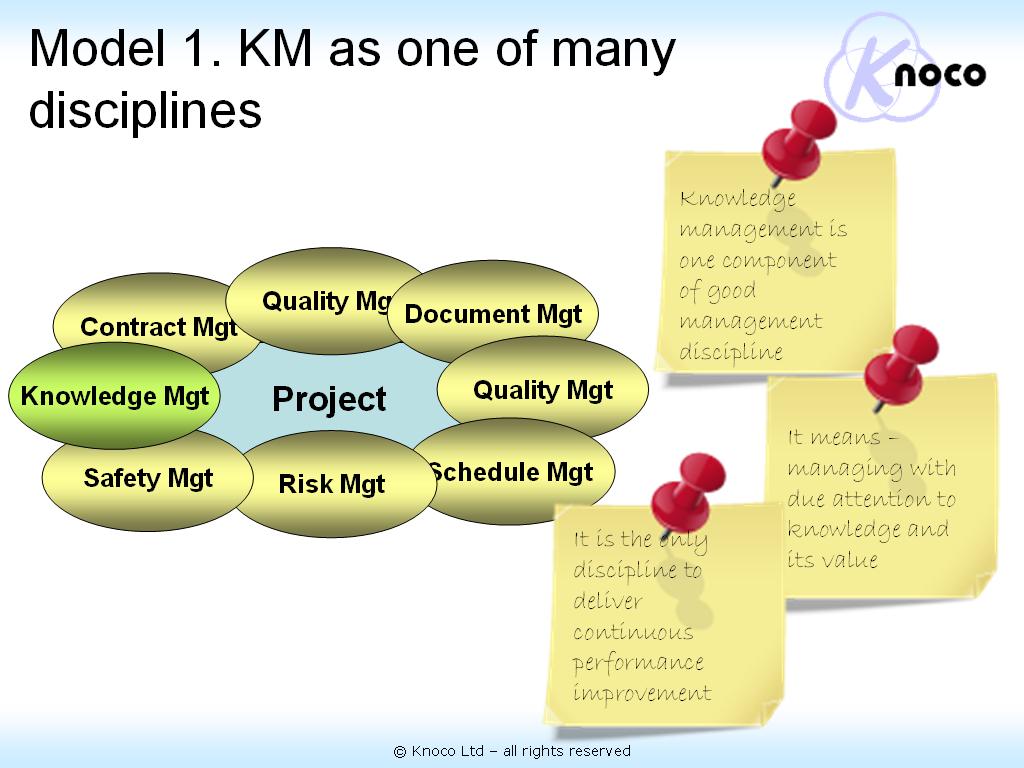There's nothing magic about Knowledge management; it's just a management discipline, like so many others.
I would suggest that Knowledge Management is one management discipline among many.
It represents a way of managing work, paying due attention to the value and effect of an intangible asset (namely, knowledge). It is one of the latest of a string of disciplines that deals with the management of intangibles.
Risk management, Quality management, customer relationship management, brand management, reputation management, security management, diversity management, safety management - all deal with intangibles. KM is no different from these others - just as important, but one management discipline among many.
There are several reasons why treating KM as "one among many" can be a useful approach.
Firstly this means that you can place KM within the same governance framework as you do the other disciplines. You can position it in the same structures and expectations. You can review it using the same review processes (the stage reviews of the project management framework, for example, can cover knowledge, risk, safety, quality etc). In other words, you can embed it easily within "normal work".
Secondly you can integrate your management systems. Take for example the ISO standard for Knowledge Management: ISO 30401:2018. This already uses the same template as the Quality Management standard ISO 9001:2015, and it does this deliberately, so that the two management systems can be aligned and integrated. The same is true for Asset Management, Innovation Management and many more. KM is strengthened when it is one of an integrated set of management systems (see here about how KM and risk management can be integrated).
Thirdly you can use the other disciplines as implementation analogues. The way you introduce knowledge management can be modelled on (or at least can learn from) the way you introduced safety management, or risk management, or diversity management. Look at your last successful deployment of a change program for introducing a new discipline. Learn from the successes of this program, and avoid the pitfalls. Use these learnings to make your KM implementation successful.
Fourthly you can use the other disciplines as framework analogues. How are the other disciplines sustained? Do they have a company policy? Support staff? Roles embedded in the business? Dedicated processes? KM will probably need something similar. This does not mean that you reproduce the frameworks from other disciplines, but it means you learn from them (finance, for example, is an analogue everyone can understand).
Finally you can look at merging roles. Perhaps the project KM role and the project Risk Management role can be held by the same individual. Perhaps the KM plan and the quality plan can be merged. Perhaps the lessons learned system and the safety alert system can be combined.





No comments:
Post a Comment